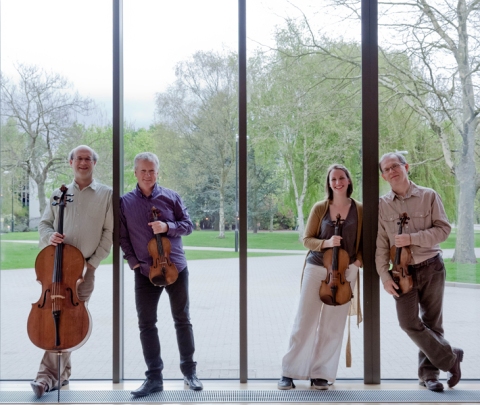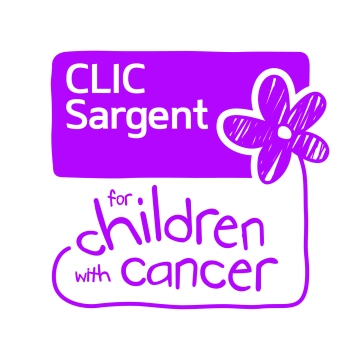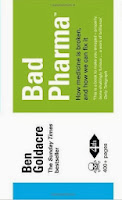The Coull Quartet are to perform at a charitable musical evening to be held at the 12th Century Ashow Church on Thursday 15th May 2014, in support of children with cancer.
Ashow Church on Thursday 15th May 2014, in support of children with cancer.
 Ashow Church on Thursday 15th May 2014, in support of children with cancer.
Ashow Church on Thursday 15th May 2014, in support of children with cancer.
To order tickets or to express interest in attending or otherwise supporting this charity event, please email worstedweavers@gmail.com.
Tickets cost £25 per person – £20 per person for orders of 10 tickets.
Go to PayPal link for online ticket payments – hosted by the Hippocrates Society
The musical performance will be held in Ashow Church, beginning with a concert by the internationally famous chamber group – the Coull Quartet, followed by a reception in the adjacent Ashow Village Centre.
Address: The Church of the Assumption of Our Lady, Ashow, Kenilworth, Warwickshire
Programme
6.30 pm Ashow Church – arrival
7 pm Coull Quartet
- Schubert D87;
- Ravel Quartet;
- Borodin Quartet No.2.
8 pm Reception – Village centre/marquee
9 pm Close
Founded in 1974, and Quartet-in-Residence at the University of Warwick since 1977, the Coull Quartet has performed and broadcast extensively throughout the UK, the USA and Western Europe, and has also toured China, India, the Far East, South America and Australia. The Coull Quartet – Roger Coull violin, Philip Gallaway violin, Rose Redgrave viola, Nicholas Roberts cello - has appeared at most of the major music societies and festivals in the UK, and gives an annual series of recitals at Warwick Arts Centre, where it is actively involved in the University’s flourishing musical life.
Quartet has performed and broadcast extensively throughout the UK, the USA and Western Europe, and has also toured China, India, the Far East, South America and Australia. The Coull Quartet – Roger Coull violin, Philip Gallaway violin, Rose Redgrave viola, Nicholas Roberts cello - has appeared at most of the major music societies and festivals in the UK, and gives an annual series of recitals at Warwick Arts Centre, where it is actively involved in the University’s flourishing musical life.
 Quartet has performed and broadcast extensively throughout the UK, the USA and Western Europe, and has also toured China, India, the Far East, South America and Australia. The Coull Quartet – Roger Coull violin, Philip Gallaway violin, Rose Redgrave viola, Nicholas Roberts cello - has appeared at most of the major music societies and festivals in the UK, and gives an annual series of recitals at Warwick Arts Centre, where it is actively involved in the University’s flourishing musical life.
Quartet has performed and broadcast extensively throughout the UK, the USA and Western Europe, and has also toured China, India, the Far East, South America and Australia. The Coull Quartet – Roger Coull violin, Philip Gallaway violin, Rose Redgrave viola, Nicholas Roberts cello - has appeared at most of the major music societies and festivals in the UK, and gives an annual series of recitals at Warwick Arts Centre, where it is actively involved in the University’s flourishing musical life.
The event is being organised jointly by the City of Coventry Worsted Weavers guild and  the national children’s cancer charity CLIC-Sargent – the UK’s leading cancer charity for children and young people, and their families. CLIC-Sargent provides clinical, practical, financial and emotional support to help them cope with cancer and get the most out of life. CLIC-Sargent aims to help the whole family deal with the impact of cancer and its treatment.
the national children’s cancer charity CLIC-Sargent – the UK’s leading cancer charity for children and young people, and their families. CLIC-Sargent provides clinical, practical, financial and emotional support to help them cope with cancer and get the most out of life. CLIC-Sargent aims to help the whole family deal with the impact of cancer and its treatment.
 the national children’s cancer charity CLIC-Sargent – the UK’s leading cancer charity for children and young people, and their families. CLIC-Sargent provides clinical, practical, financial and emotional support to help them cope with cancer and get the most out of life. CLIC-Sargent aims to help the whole family deal with the impact of cancer and its treatment.
the national children’s cancer charity CLIC-Sargent – the UK’s leading cancer charity for children and young people, and their families. CLIC-Sargent provides clinical, practical, financial and emotional support to help them cope with cancer and get the most out of life. CLIC-Sargent aims to help the whole family deal with the impact of cancer and its treatment.





